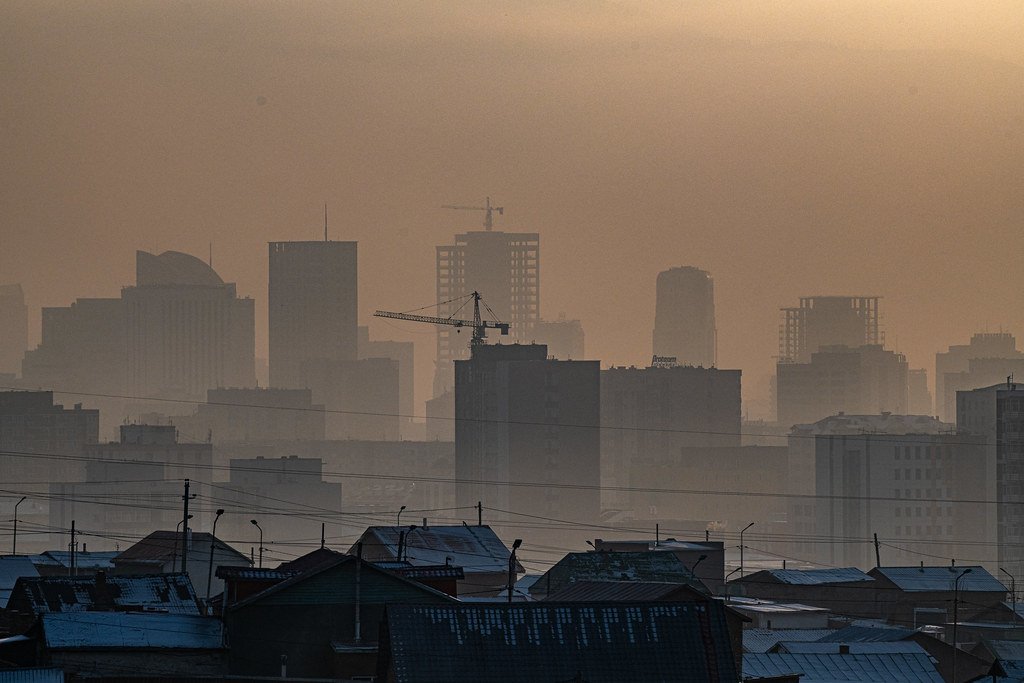World Bank-Sweden report reveals poverty and distributional impacts of air pollution in Tbilisi
The study leverages a variety of data sources, including administrative data, surveys, satellite imagery, and real-time monitoring to assess the distributional impacts of air pollution.

The World Bank, with the financial support of Sweden, today launched a new comprehensive study, "Poverty and Distributional Consequences of Air Pollution in Tbilisi," which analyzes the severe effects of air pollution on the health and economic well-being of Tbilisi's residents, with a particular focus on how the most vulnerable populations of the capital of Georgia are impacted.
The study leverages a variety of data sources, including administrative data, surveys, satellite imagery, and real-time monitoring to assess the distributional impacts of air pollution. The report indicates that while wealthier individuals reside in the city center with higher pollution levels, poorer households and those with lower education are more vulnerable due to longer outdoor work hours, limited knowledge about air pollution and its impacts, and higher exposure to indoor air pollution.
"Improving air quality in Tbilisi can protect the health of its residents, especially the poorest and most vulnerable. Taking the policy intervention steps outlined in our new report would also contribute to Georgia’s green transition," said Rolande Pryce, the World Bank Regional Director for the South Caucasus.
"Air pollution causes more deaths globally than malnutrition, AIDS, tuberculosis, and malaria combined," said Erik Illes, Head of Development Cooperation and Deputy Head of Mission at the Embassy of Sweden in Tbilisi. "Sweden is assisting Georgia to improve the national air quality monitoring systems, take necessary measures to improve the situation and become compliant with EU standards. Our collaboration with the World Bank on this critical issue empowers the residents in Tbilisi with the information they need to protect themselves and their families from the dangers of air pollution and to improve accountability."
The study suggests that reducing outdoor air pollution in Tbilisi is achievable through enhanced air quality monitoring, regulation of traffic and industrial emissions, and the promotion of green technologies. Incentivizing electric vehicle use and enforcing fuel standards could also reduce traffic-related emissions while preparing Georgia for the green transition. Additionally, introducing carbon pricing, a policy instrument designed to tackle greenhouse gas emissions, could markedly improve local air quality by reducing overall emissions.
Indoor air pollution levels in Tbilisi often surpass outdoor ones and pose a significant threat, the study points out. Cooking, smoking, and building insulation materials are major drivers of indoor air pollution in the capital. The report recommends targeted taxation on tobacco and polluting cooking fuels, as well as information campaigns and incentives for adopting air quality monitors.
“Air pollution impedes development by causing fatal illnesses, creating harmful living conditions, and destroying ecosystems, which exacerbates poverty and inequality,” said Luis Felipe López-Calva, the World Bank Global Director for Poverty and Equity Global Practice. “The World Bank is committed to continue working closely with Georgia in protecting the poor and vulnerable people who suffer the most from the negative impacts of air pollution.”
The report is a product of close collaboration with Government of Georgia counterparts, including the Ministry of Environmental Protection and Agriculture, the Ministry of Education, Science, and Youth, Tbilisi City Hall, the National Center for Disease Control, and the National Statistics Office, as well as local and international researchers at ISET, and a think tank in Tbilisi (CRRC) with financial support from Sweden.
The report’s dissemination event brought together policymakers, private sector, civil society, and academia to discuss the findings and explore actionable solutions for cleaner air and a healthier Tbilisi.
- READ MORE ON:
- Air Pollution
- World Bank
- Sweden
- Tbilisi
ALSO READ
Rajasthan Allocates Rs 344.70 Crore to Combat Jaipur's Air Pollution
Mumbai's High-Tech Battle Against Air Pollution: IoT and AI to the Rescue
Air pollution: SC seeks response on measures suggested to deal with dust due to construction and demolition activities.
Air pollution: SC asks UP, Haryana, Rajasthan to issue public notices to coal-based industries in NCR.










